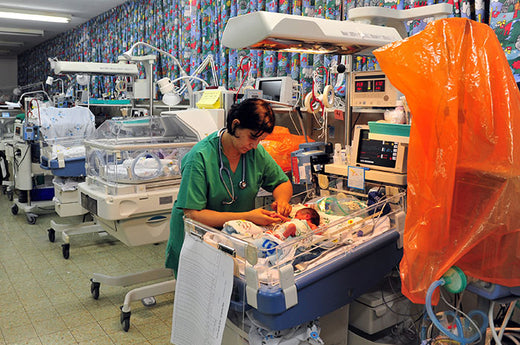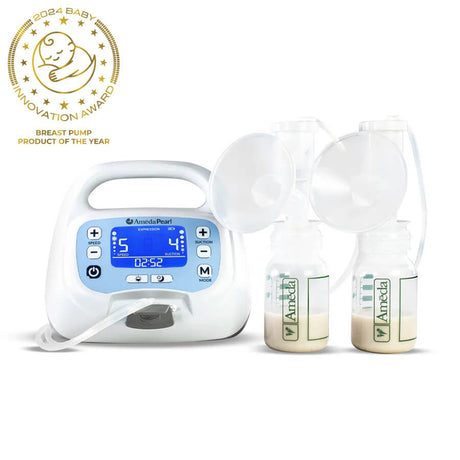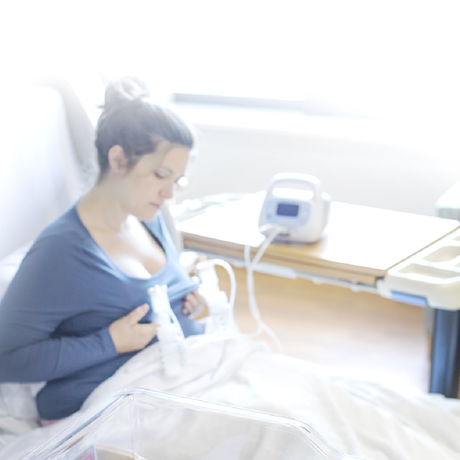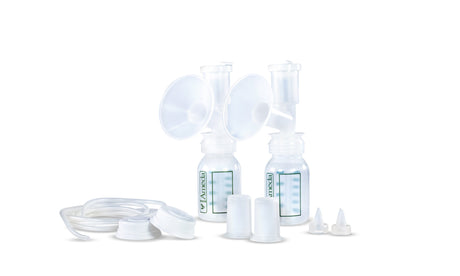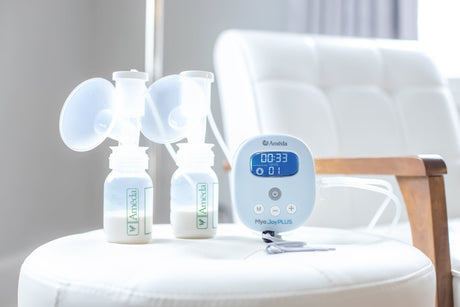Published:
by Jessica Sillers
For some babies, the initial days, weeks, or months after birth can be some of the hardest of their lives. September is Neonatal Intensive Care Awareness Month, which means now is a great time to send support and love toward the babies and families experiencing a NICU stay, and the medical professionals who take care of them.
What many families don’t realize at first is that NICU isn’t a one-size-fits-all label. The AAP currently lists four levels of NICU care. Parents expecting a baby with medical issues, or who deliver prematurely, may find it reassuring to learn as much as possible about the different levels of care available for their baby.
Level I: Well Newborn Nursery

A well baby nursery is the standard level of care for babies born at term or close to term (after 35 weeks, sometimes called late preterm). Well newborn nurseries perform standard newborn screening tests. They may offer routine care for newborns in hospitals that don’t have babies “room in” with parents, and they can treat minor medical conditions, too.
If your baby has a more serious condition or is born before 35 weeks, the well baby nursery will have equipment needed to help stabilize your newborn, but your medical providers will need to transfer the baby to a nursery that can provide a higher level of care.
Level II: Special Care Nursery
A special care nursery, also called Level II NICU, offers extra care for a variety of situations. Depending on your preemie baby’s gestational age and weight, he or she may spend time here. Generally, special care nurseries are equipped to care for premature babies born at or after 32 weeks’ gestation (these babies are sometimes called moderately premature) and who weigh more than 1,500 grams (about 3.3 lb.). Birth weight plays an important role in a premature baby’s care needs and health risks, and 1,500 grams is the cutoff between low birth weight and very low birth weight. Special care nurseries may briefly care for babies below this weight cutoff, but only to stabilize them before transferring them to a higher level of care, or sometimes to monitor babies coming out of a higher-level NICU center before sending them home with parents. 
Special care nurseries also treat babies with some health problems, such as jaundice or difficulty feeding. Some Level II NICU centers don’t have equipment to offer respiratory assistance, while others do (these used to be called Level IIA and Level IIB). Even if a special care nursery does have respiratory equipment, it’s still only meant to be used for a short period of time, 24 hours maximum. If a baby needs breathing help, it’s time to transfer to a higher level of care.

Level III Neonatal Intensive Care Unit (NICU)
When you read about NICU centers in the media, Level III centers are often what comes to mind. These nurseries operate with a clinical team of professionals who are prepared to treat critically ill babies. Very premature babies, born around 27 weeks’ gestation or later, come here, as do babies who were diagnosed with serious health conditions in utero. You’ll find a team of pediatric subspecialists, who may specialize in treating neonatal heart or kidney conditions, or who may be experts at operating to correct particular kinds of birth defects. Nurses are specially trained to care for the most vulnerable babies, and a Level III NICU has advanced equipment to help babies breathe, provide IV fluids for babies who can’t eat yet, and perform other specialized medical support.
Depending on your area and hospital, Level III may be considered the highest level of NICU care. Classification systems vary on whether they categorize nursery care into three or four levels. If your area follows a three-level classification system, your Level III NICU will typically be able to offer the same kinds of care that a Level IV center can, too. If you have a high-risk pregnancy or are expecting a baby with serious complications, you may want to ask ahead of time about the kinds of surgeries available or experience caring for micro preemies at your hospital’s Level III NICU.
Level IV NICU

In states or hospitals that use a four-level NICU classification system, Level IV represents the most intensive level of newborn care. Micro preemie babies, born before 26 weeks or weighing less than 800 grams (about 1 lb., 12 oz.) come here, as well as babies born with very serious birth defects or conditions.
Both Level III and Level IV NICUs follow strict protocol and routines. It can be an intimidating environment at first to try to understand the procedures and rules. It might help reassure you to remember that the strict rules are a sign that the medical team is following the best practices they can for the most fragile babies in their care. NICU doctors and nurses also know how frightening it is for parents to see their baby so sick and vulnerable, and they can show you things you can do to bond and show love to your baby, even if your little one is too sick to be held.
What Should I Ask My Doctor About NICU Care?
If you’re experiencing a high-risk pregnancy, or if you’re expecting a baby who you know will need extra care after birth, you may be anxious to know how to get your little one safe and healthy as soon as possible. Your health care team can answer questions and help make a plan to give your new baby the best care possible. Knowing what questions to ask can bring you some peace of mind and help you make informed choices for your new baby.
- How many babies does your NICU treat? Higher numbers can connect to more experience and better outcomes.
- Can you show me outcome data? Survival rates, especially displayed by weeks’ gestation, show a NICU’s success.
- Can I pump breast milk to feed my baby? Is there enough donor milk for babies whose mothers aren’t producing enough milk?
- What are light and noise levels like in the NICU?
- Are pediatric specialists available 24/7?
- What options exist for parents to stay overnight?
- Is there free or reduced-cost parking for NICU parents?
- Can I help check my baby’s vital signs, feed, hold, or bathe my baby?
- Can we request the same nurse to care for our baby?
- What is the going-home procedure like, and what kinds of follow-up care will my baby need?
As you can see, NICU experiences vary widely depending on how much care each baby needs. The best way to get clear information is to ask your health care providers about your specific case. The more you know, the better prepared you’ll be to support your baby during a NICU stay and get ready for the big day when you get to go home as a family.
DISCLAIMER: Ameda strives to present you with accurate and useful breastfeeding information. This article may contain information and ideas that are not necessarily the views of Ameda. It does not constitute medical advice. If you have any questions please contact your healthcare professional.

